COVID-19 and the relentless harms of Australia’s punitive immigration detention regime
Calls for the urgent release of people seeking asylum, refugees and other non-citizens held in immigration detention centres began as soon as the magnitude and reach of the global health crisis associated with COVID-19 became clear. Public health organisations quickly identified detention centres, as sites of mandatory and often overcrowded social confinement, as extremely high risk places for both infection and onward transmission of COVID-19.
In Australia, before the end of March 2020, over 1180 health care professionals and epidemiologists called for the Government to release people from immigration detention, flatly stating that, ‘[f]ailure to take action to release people seeking asylum and refugees from detention will . . . put them at greater risk of infection (and possibly death)’ (SBS News, 2020).
Similar statements were made by the Australasian Society for Infectious Diseases, the Australian College of Infection Prevention and Control (Davis and Russo, 2020 PDF 210KB) and over 1100 Australian and international academics in an open letter to the Australian Government initiated by Academics for Refugees (Academics for Refugees, 2020). Common to all expert advice were warnings that a failure to take action would not only endanger the health and lives of those in detention, but would inevitably put the broader community at risk, since detention centres are porous locations with staff and other personnel frequently moving in and out of them.
Despite the Australian Government’s willingness to follow the advice of public health experts in relation to the broader community, it has not heeded expert recommendations regarding this group of people. There is a consistent refusal to include refugees, people seeking asylum and other non-citizens in the urgent, national public health response to the pandemic. The Government’s response to refugees and ‘irregular migrants’ continues to be primarily framed by questions of national security, criminality and border policing/control, and is wholly inconsistent with the approach adopted in relation to the broader community (Ferdinand et al., 2020).
As we outline below, the response to people seeking asylum, refugees and other non-citizens has varied across jurisdictions; in Australia the Government’s refusal to take responsibility for the protection of people in detention has led to protest and resistance from both within and outside sites of detention.
Mandatory confinement in a global pandemic
At the same time as mandatory social distancing measures were adopted across Australia to control the spread of COVID-19, the Australian Government refused to provide proper protections for many groups most at risk, including those who were forced to remain in sites of immigration detention.
Since March 2020 the Minister for Home Affairs Peter Dutton, who himself contracted COVID-19 early that month, ignored advice that urgent action was needed to protect people in detention and by extension, the broader community. The Government’s most direct response in this period came from a Departmental Spokesperson at the end of March, who confirmed detainees would not be released and stated that ‘[i]nfection control plans [were] in place in detention’, a claim contested by immigration detainees (Al-Ghalib, 2020). The Department for Home Affairs has reiterated this position on its website (Department of Home Affairs, 2020b).
Although specific Guidelines were adopted for the management of COVID-19 risks in prisons and immigration detention in late March, the primary focus of the Guidelines is on limited prevention measures and outbreak management, rather than focused on what the World Health Organization and other human rights bodies have strongly urged states to do: act swiftly to implement non-custodial measures and reduce the size of populations within high-risk closed environments (Department of Health, 2020 PDF 1.6MB).
The Australian Government’s failure to act on such public health advice is glaring and the government has been criticised for its double standards (Loughnan et al., 2020). Although there are contrasts between Australia and international practice, even ‘proactive’ responses are subject to critique. In Europe, some temporary efforts have been made, with the British Home Office releasing people from immigration detention to stem a potential escalation of their public health crisis. Some 400 people had been released by the end of April (Taylor, 2020). But release is not automatically a positive outcome. For some asylum seekers, it has led to homelessness, and a loss of means of support (Ironmonger, 2020). For others, it has put them in more vulnerable positions, housed in accommodation where it is impossible to practice social distancing (Brooks, 2020). Many of those released in the UK were granted ‘freedom’ with nowhere to go (Kelly, 2020). Accordingly, some government responses which might appear positive, are soon revealed as putting migrants and refugees at risk of other kinds of violence.
Refugees and non-citizens have also been released from detention in the United States. However, this is due to Government-opposed litigation and legal activism. To stall the spread of infection, several courts ordered the release of people who are at particular risk of COVID-19 infection from immigration prisons. One judge found that US immigration officials had:
likely exhibited callous indifference to the safety and well-being of the [detained immigrants at risk]. The evidence suggests system-wide inaction that goes beyond a mere ‘difference of medical opinion or negligence’ (Southern Poverty Law Centre, 2020).
If there is any prospect for people seeking asylum, refugees and other non-citizens to be released from sites of immigration detention in Australia, it will similarly be as a consequence of contested legal proceedings and public campaigning. In April 2020 lawyers mounted a court case on behalf of a detained refugee, seeking protection from COVID-19 (Human Rights Law Centre, 2020). Their preliminary submissions argued that the government has a duty of care to refugees, which cannot be met in immigration detention due to crowded conditions and the absence of public health protections. However, this particular case has since been withdrawn owing in part to the drastic reduction of COVID-19 infections in Australia by mid-2020.
This individualised, case-by-case strategy to bring about compliance with public health advice for those detained is at odds with both the register and substance of the Government’s general response, which has consistently emphasised the need for a collective approach and collective compliance in managing COVID-19. The sentimental refrain ‘we are all in this together’ has been a common catchphrase, though it clearly does not extend to detained non-citizens. And, as Ferdinand et al. (2020) have noted, the non-response for those in immigration detention is in sharp contrast to Australia’s world-leading management of the pandemic, including record testing rates and swift implementation of social distancing and disease control measures in the community.
The impossibility of social distancing in immigration detention
About 1400 people are currently in immigration detention in Australia (Department of Home Affairs, 2020a PDF 866 KB). This includes Alternative Places of Detention (APODs), where many refugees have been detained for prolonged periods, including in commercial hotels located in or on the outskirts of major Australian cities. This number remained largely unchanged in the first 3 months after Australia recorded its first COVID-19 infection, indicating that there have been no significant discretionary releases of people from immigration detention to date.
Social distancing has not been possible in detention centres and APODs. There are serious and obvious risks due to overcrowding, and reports received from inside Australian immigration detention sites in April indicated that staff have adopted limited or no protective measures, and that those detained have limited or no access to hand sanitiser or adequate hand-washing facilities (Holt and Vasefi, 2020). The lack of transparency and oversight of immigration detention facilities, run by the large multi-national for-profit operator Serco, has meant that there is little public information about the availability of COVID-19 testing in immigration detention nor the use of other measures such as medical quarantine. Instead, the few publicly-acknowledged measures – such as prohibiting visitors to centres – have had a punitive effect on incarcerated non-citizens in the name of ‘protection’ (Ryan, 2020a).
Notably, the inherent risks of exposure in confined settings are heightened in conditions where people are unable to engage in individual-level preventative behaviours, such as regularly washing hands with soap and water. People in Australian immigration detention are often required to share sleeping quarters (often with four to six people in one room as set out in a complaint filed by those detained to the Ombudsman), as well as bathrooms, laundries and areas where food is consumed (Farhart, 2020). Even within the confines of detention centres the population is not static, as people are often transferred into and between centres at different times, for varying durations.
Protest and resistance within and outside Australia’s hotel ‘APODS’
Somewhat perversely, the COVID-19 pandemic has led to increased visibility of the hyper-incarceration of non-citizens in Australia and of the detrimental risks posed within immigration detention, where social distancing is impossible. Some of the most urgent concerns regarding COVID-19 and immigration detention apply to hotels designated as APODS. Here, refugees are detained in small hotel rooms with limited or no ventilation (Commonwealth Ombudsman, 2020 PDF 559KB).
As commercial hotels began to be occupied by returned travellers placed in mandatory quarantine in compliance with Australian public health orders, non-citizens indefinitely detained in hotel APODs commenced protests to highlight the impossibility of social distancing in their overcrowded hotel rooms. Recent reports have emerged of COVID-19 infections amongst security guards who are said to have refrained from practising adequate protective measures in ‘quarantine hotels’ in Melbourne. This illustrates the real, and everyday health risk to refugees held in immigration transit centres and ‘detention hotels’, especially for many who have pre-existing health conditions.
Refugees and non-citizens detained in rooms in the well-known hotel chain Mantra, and in the Kangaroo Point Hotel, engaged in (at times daily) peaceful protests and utilised social media campaigns to call for their urgent release into safe accommodation. The hotel chains, contracted to detain people seeking asylum in Brisbane and Melbourne, are profiting daily from their involvement. They are also ignoring direct appeals from advocates and experts to terminate their contracts with the Australian Government (Ryan, 2020b). As the risk of COVID-19 in Australia intensified, Amnesty International launched a campaign to encourage supporters to post negative online reviews of participating hotels on sites such as Tripadvisor. One ‘one star’ Google review for an APOD hotel asked:
Is it true the Government is detaining people who are refugees and asylum seekers here? Please allow them to go to safe community-supported accommodation instead of being trapped in dangerous conditions in hotels.
Neither contracted hotel chain responded to the campaign, and at the time of writing no reviews mentioning either of the hotels’ role in Australia’s detention centre network remained on their Tripadvisor or other ‘review’ pages (Ryan, 2020b; Tripadvisor, 2020). However, some reports remain which suggest that hotel customers are aware that there is something amiss in the operations of the hotels and the ‘clientele’ they ‘serve’ (Loughnan, 2020).
Other protests calling for the release of those detained have taken place inside and outside of these hotels. In early April 2020, protestors formed a car motorcade to highlight the conditions faced by detainees held in the Mantra Hotel in an inner north Melbourne suburb. Those detained at the Mantra ‘Bell City’ hotel simultaneously protested from within the hotel. Aiming to comply with the public health orders in force at the time, the protestors outside the hotel maintained social distance by remaining in their cars at all times. Police nonetheless issued $43,000 worth of fines to protestors for breaching the ‘stay at home’ direction put in place by the Victorian Government (Blakkarly, 2020). Protestors argued they had left their home for ‘compassionate reasons’, a reasonable excuse to travel under the orders, and they are contesting the fines.
At the time of writing, further protests at the APOD sites, while still navigating social distancing requirements, have taken place in both Melbourne and Brisbane. Those who are detained there continue to protest the failure of the government to extend the same public health safety measures they extend to the community, which enhances their risk of infection. Many are using Twitter and Facebook to document their protests and conditions.
Conclusion
It is clear that this virus is not the social leveller claimed by early reports. The Government’s response to COVID-19 illustrates persistent inequalities and discrimination against those not deemed worthy of any form of adequate protection. The experience of those incarcerated in immigration detention is a concrete reminder of COVID-19’s ‘disproportionate impact’ on people seeking asylum, refugees and other non-citizens (Guterres, 2020). As the UNHCR highlights, the pandemic has exacerbated existing inequalities for those on the move in relation to socio-economic precarity, access to health, and protection needs, as border closures leave people trapped in dangerous and life-threatening situations. Migration pathways have been seriously and detrimentally disrupted. At the same time the UN agency has somewhat optimistically suggested that the impact of the virus has presented an opportunity to ‘reimagine human mobility for the benefit of all’ (Guterres, 2020).
Against such optimism, Boochani and Tofighian (2020) argue that Australia’s refugee and detention policies represent ‘a perverse kind of obstinacy’ and a ‘political program feeding a border industrial complex that ensures the continued incarceration of human beings’. As they note, the Australian government has long been privy to evidence of extreme violence in places of detention and nothing has been done address it (Boochani and Tofighian, 2020). The pre-pandemic conditions in detention are a critical factor in both analysing and explaining the Australian Government’s stubborn refusal to respond to the risks of infection and illness faced by those in detention – and the ways in which the pandemic has, so far, reinforced rather than ‘reimagined’ Australia’s regime of mandatory immigration detention.
This article was originally published in Crime, Media, Culture: An International Journal on 1 August 2020
Short biographies
Anthea Vogl is a Senior Lecturer in law at the University of Technology Sy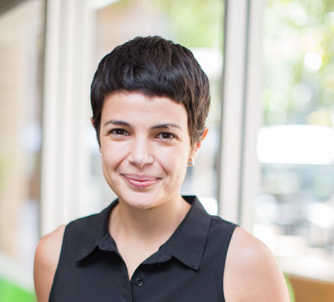 dney. Her research addresses refugee and migration law, with a focus on the use of administrative powers to regulate refugees and non-citizens. She lectures in Administrative Law, Legal Theory and Refugee Law and Practice. Her current research projects address visa cancellation practices among asylum seeker and refugee populations, and the private sponsorship of humanitarian entrants in Australia.
dney. Her research addresses refugee and migration law, with a focus on the use of administrative powers to regulate refugees and non-citizens. She lectures in Administrative Law, Legal Theory and Refugee Law and Practice. Her current research projects address visa cancellation practices among asylum seeker and refugee populations, and the private sponsorship of humanitarian entrants in Australia.
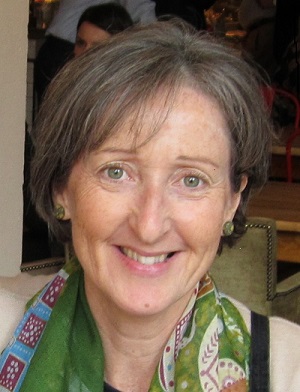 Caroline Fleay is an Associate Professor at the Centre for Human Rights Education, Curtin University, where she teaches human rights and conducts research with people from refugee backgrounds. She has been a regular visitor to some of Western Australia’s sites of immigration detention and written extensively about the impacts on people seeking asylum of indefinite detention and being released into the community with minimal supports. Caroline is currently a Board Member of the Refugee Council of Australia and continues to work with people from refugee backgrounds and local, national and regional refugee support organisations and activists to campaign on the rights to seek asylum.
Caroline Fleay is an Associate Professor at the Centre for Human Rights Education, Curtin University, where she teaches human rights and conducts research with people from refugee backgrounds. She has been a regular visitor to some of Western Australia’s sites of immigration detention and written extensively about the impacts on people seeking asylum of indefinite detention and being released into the community with minimal supports. Caroline is currently a Board Member of the Refugee Council of Australia and continues to work with people from refugee backgrounds and local, national and regional refugee support organisations and activists to campaign on the rights to seek asylum.
Claire Loughnan is a Lecturer in Criminology, at the School of Social and Political Sciences, Un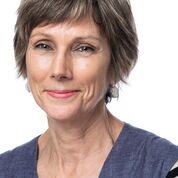 iversity of Melbourne. Claire has been researching the impact of externalisation policies upon refugees for a number of years, with a particular focus on immigration detention and offshore processing in the Australian context. She is a research partner with the Comparative Network on Refugee Externalisation Policies, co-convenor of Academics for Refugees (University of Melbourne), and a member of Australia’s OPCAT (Convention against Torture) Network which advocates for monitoring of conditions in immigration detention. She is lead investigator on a Melbourne University Arts Research Collaboration Seed Funding Grant to develop a digital (VR) representation of the immigration detention centre on Manus Island, which was dismantled following its closure in 2017.
iversity of Melbourne. Claire has been researching the impact of externalisation policies upon refugees for a number of years, with a particular focus on immigration detention and offshore processing in the Australian context. She is a research partner with the Comparative Network on Refugee Externalisation Policies, co-convenor of Academics for Refugees (University of Melbourne), and a member of Australia’s OPCAT (Convention against Torture) Network which advocates for monitoring of conditions in immigration detention. She is lead investigator on a Melbourne University Arts Research Collaboration Seed Funding Grant to develop a digital (VR) representation of the immigration detention centre on Manus Island, which was dismantled following its closure in 2017.
Philomena Murray is Honorary Professorial Fellow in the School of Social and Political Sciences at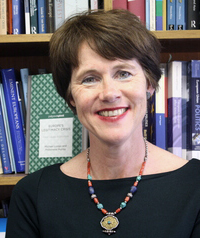 the University of Melbourne. She holds Australia’s only Personal Jean Monnet Chair (ad personam) awarded by the European Union (EU). She is Director of the Comparative Network on Refugee Externalisation Policies (CONREP). Philomena is co-founder and co-convenor of Academics for Refugees. She is the recipient of multiple EU-funded research grants. Research interests include comparative refugee externalisation policies; comparative regionalism; EU governance and legitimacy; EU foreign policy and Brexit. She holds honorary positions at Trinity College Dublin and UN University Institute for Comparative Regional Integration Studies, Bruges.
the University of Melbourne. She holds Australia’s only Personal Jean Monnet Chair (ad personam) awarded by the European Union (EU). She is Director of the Comparative Network on Refugee Externalisation Policies (CONREP). Philomena is co-founder and co-convenor of Academics for Refugees. She is the recipient of multiple EU-funded research grants. Research interests include comparative refugee externalisation policies; comparative regionalism; EU governance and legitimacy; EU foreign policy and Brexit. She holds honorary positions at Trinity College Dublin and UN University Institute for Comparative Regional Integration Studies, Bruges.
Dr Sara Dehm is a Lecturer of international law and refugee law at the University of Technology Syd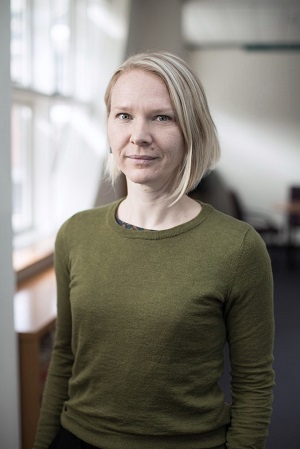 ney. Her research examines the history and theory of the global administration of human mobility, with a particular focus on practices of border control, knowledge-production and technical assistance to states in the Global South. She is a current UTS Early Career Researcher Fellow on a project examining healthcare as border control in Australia’s offshore detention regime. Her first book, Administering Migration: International Law and the Global Ordering of People, is under contract with Cambridge University Press.
ney. Her research examines the history and theory of the global administration of human mobility, with a particular focus on practices of border control, knowledge-production and technical assistance to states in the Global South. She is a current UTS Early Career Researcher Fellow on a project examining healthcare as border control in Australia’s offshore detention regime. Her first book, Administering Migration: International Law and the Global Ordering of People, is under contract with Cambridge University Press.